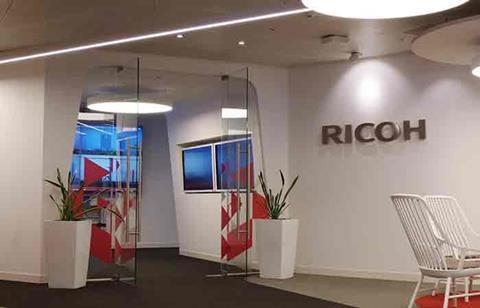
In June 2019, document services, consulting, software and hardware business Ricoh placed itself at the vanguard among employers, introducing financial wellbeing artificial intelligence (AI) chatbot MyEva to its approximately 2,000 UK employees.
In the years since, the organisation has seen registration for the service increase from 19% to 46%, highlighting employees’ willingness to engage with technology in lieu of more traditional HR processes, according to Rebekah Wallis, director of people and ESG at Ricoh UK.
Willis reports AI is a particularly useful tool when it comes to speeding up HR processes at Ricoh, while providing employees with instant answers and information where they might previously have had to wait for; for example, it can provide automated emails to confirm important information around salary increases.
MyEva uses chatbot AI technology to provide tailored information, answers to questions, and helpful nudges to staff. For Ricoh, its introduction was also about reaching staff not based at desks, as well as keeping on top of the next generation of technology and engaging future employees, all of which has become more important considering the vast changes that have occurred in the years since.
However, this is not a case of simply implementing a tool and leaving it be, Wallis says: “While AI is a useful tool, it’s only as good as the data it relies on. We work hard to make sure the data feeding into this process undergoes thorough checks to ensure its accuracy and reliability.”
Looking ahead to the next development in AI, Willis says: “It is crucial for HR teams to recognise the implications that the future of work holds and understand how it will affect the workforce.
“The emergence of technologies like ChatGPT is already transforming how certain individuals perform their tasks, and this trend is set to continue.
“However, it is important to acknowledge that this advancement also has the potential to widen the digital divide.
“To stay ahead of, or at least keep pace with, these developments, HR teams must proactively prepare for the future by equipping employees with the necessary digital skills and confidence to effectively utilise AI, including ChatGPT, and other automation tools in their roles.”
Using programmes such as ChatGPT to evolve the communication landscape might prove key to the future of HR, allowing people to tackle more high level, strategic, or nuanced work, and have a more valuable individual impact as a result.
“By ensuring that all individuals have the capability to deploy these technologies, organisations can embrace the changing dynamics and enable their workforces to thrive in the evolving landscape of work,” says Willis.
Nevertheless, if ChatGPT does become a mainstay of the modern workforce, just as with any piece of tech, there is human work to be done.
“Automation presents an excellent opportunity to enhance job satisfaction, employee engagement, loyalty, and productivity,” Willis says.
“However, it is crucial to emphasise that human oversight remains essential when implementing automation tools.
“To create an appealing work environment that attracts and retains talent, employers must actively consult and incorporate employee feedback into workplace solutions.
“There is still a need for hands-on human involvement to ensure systems are correctly put in place, and most importantly, to engage employees.”
Read also:
What role does ChatGPT have to play in benefits communication?



























